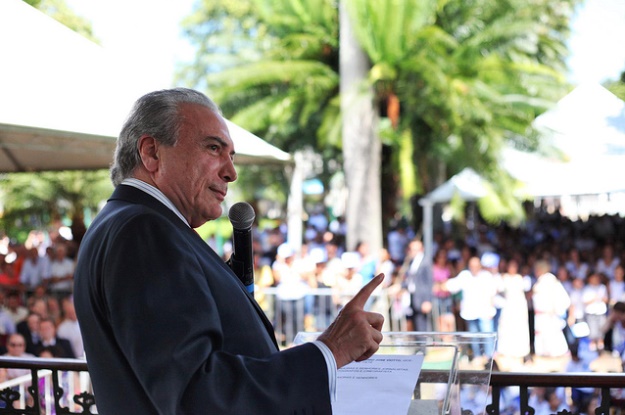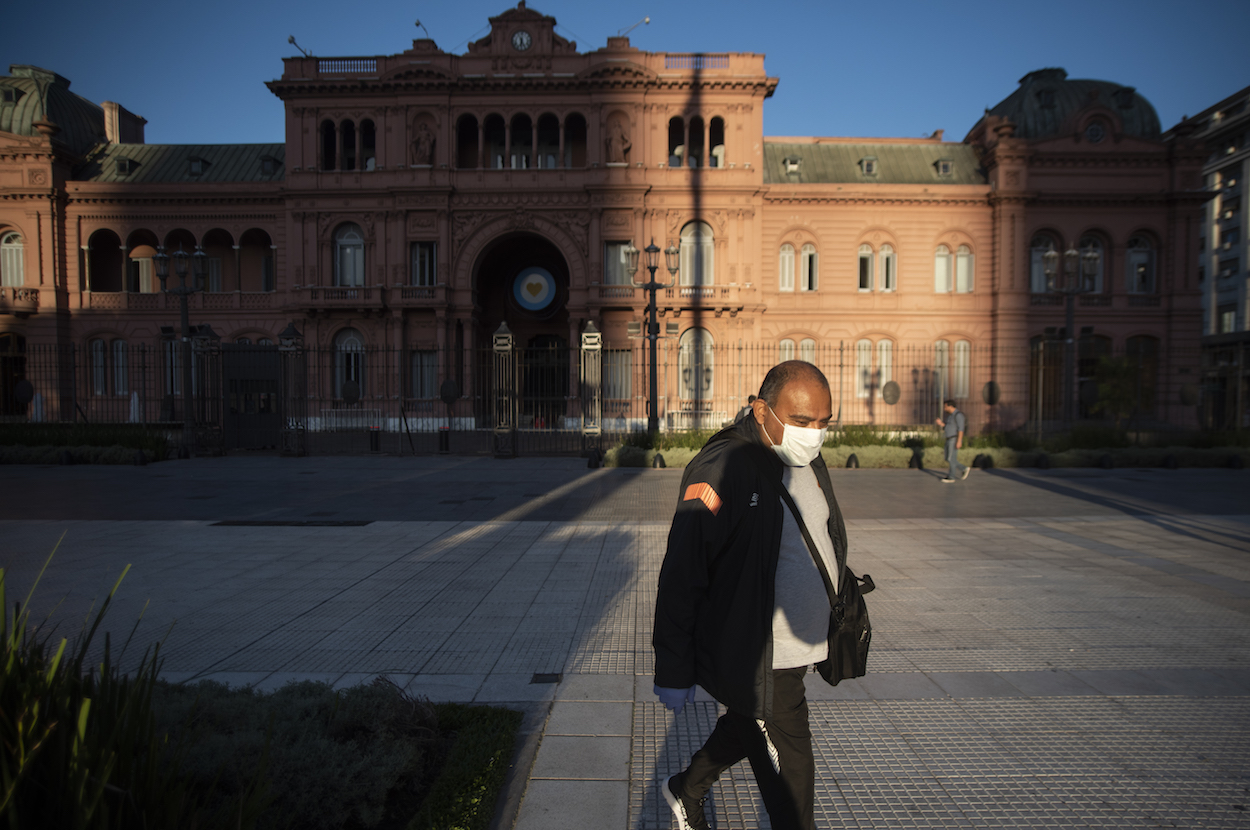Sign up here to get This Week in Latin America delivered to your inbox every Monday.
Temer’s Time: It’s the first full week in office for Michel Temer, the interim president of Brazil while Dilma Rousseff is suspended pending a Senate impeachment trial. Temer is expected to today name a new president of the Central Bank after a weekend of consultations with his new finance minister, Henrique Meirelles. Temer has said he wants a team that will get the budget in order; he already cut the number of ministries to 25 from 32, plans to slash 4,000 government positions by the end of 2016, and is meeting today with union groups to discuss a major labor and welfare reform. But Brazil’s new president is also already facing criticism, most notably for appointing an all-male, all-white cabinet that includes seven ministers implicated in the Lava Jato corruption scandal.
Cristina Indicted: Argentina’s former president, Cristina Fernández de Kirchner, is expected to appeal an indictment over allegations that she manipulated the country’s finances ahead of an election last year. The indictment was issued Friday along with charges against her former economy minister and central bank chief over an alleged scheme to sell billions of dollars on the futures market at an artificially low rate to boost foreign reserves. Fernández and her supporters say the ruling against her is politically motivated. As that case heats up, newly elected President Mauricio Macri is attempting to shut the door on old financial disputes. His finance ministry announced Friday it will issue dollar-denominated bonds to pay $217 million to two foreign energy companies to settle arbitration cases from the country’s 2001-2002 financial crisis.
Ayotzinapa Investigations: Mexico’s foreign minister will this week meet with representatives from the Inter-American Commission on Human Rights (IACHR) amid ongoing concern over the government’s handling of investigations into the September 2014 disappearance of 43 students from Guerrero state. A report issued by the GIEI, a group of experts convened by the IACHR, last month suggested severe discrepancies between the government’s version of events and physical evidence at the alleged site of the student’s presumed murder. Mexican officials say the meeting is intended to “reaffirm” their commitment to finding out what happened to the students, though the GIEI’s mandate to investigate ended on April 30.
Nearing Peace in Colombia: Colombia’s supreme court could decide as early as this week on the constitutionality of a proposed plebiscite that would ask citizens to approve an eventual peace deal between the government and FARC guerrillas. If found to be constitutional, the plebiscite would require a minimum of just 13 percent of the voting population (or 4.4 million people) to vote either for or against a deal for the results to be considered valid, a threshold for participation that many believe favors passage. After months of delays, a breakthrough between FARC and government negotiators last week on a constitutional framework for a final agreement suggests a deal is imminent.
Economy in Brief
Chile will this week begin exporting liquified natural gas to neighboring Argentina.
Venezuela’s opposition questioned the legality of President Nicolás Maduro’s decision to extend a state of economic emergency.
The Central Bank in Peru says the country’s economy grew by an estimated 4.5 percent in the first quarter of 2016.








